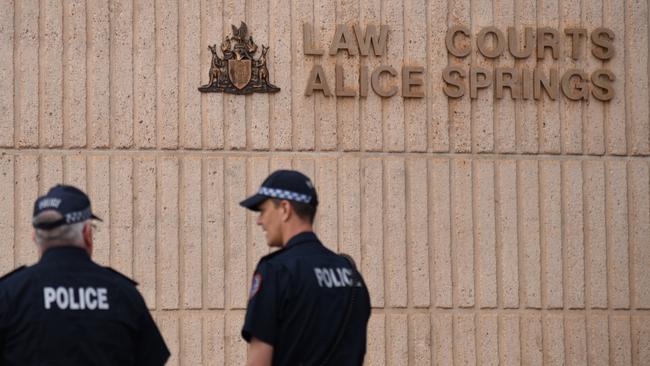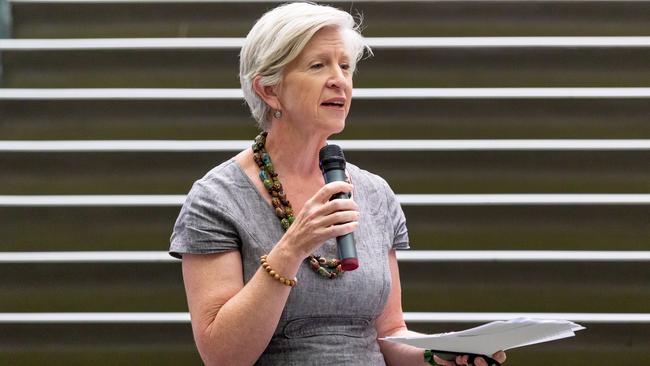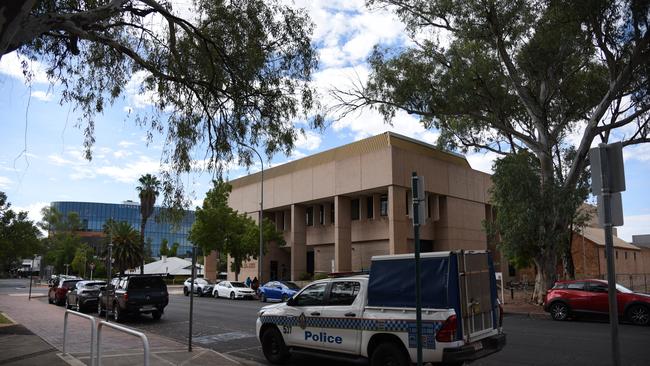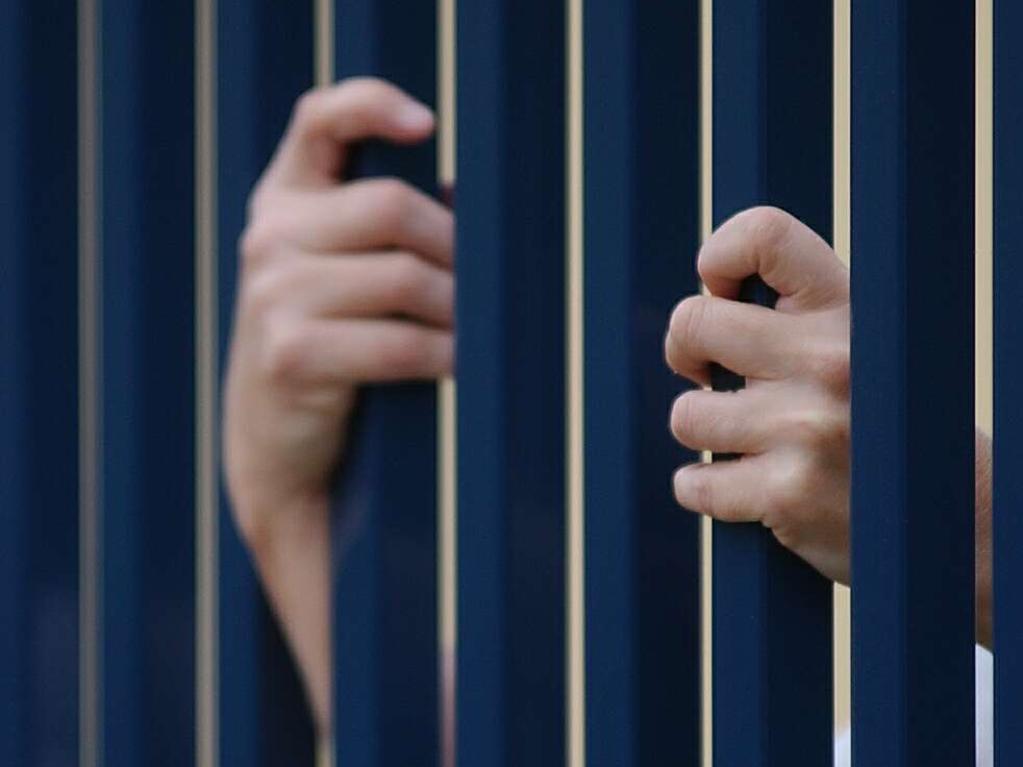Alice Springs Local Court critically understaffed, according to top NT judges
An alarming email to staff at Alice Springs Local Court has whistleblowers warning the NT justice system is now teetering ‘on a cliff edge’.

A critical staffing shortage in Alice Springs has forced the NT local court chief judge to dramatically cut back bail application hearings, leaving vulnerable defendants to spend longer periods in custody.
The Alice Springs Local Court will no longer hear bail applications after 3pm, after Chief Judge Elizabeth Morris approved on the new cut-off time.
Members of the legal fraternity in Alice Springs are gravely concerned that hearings for defendants who plead guilty are still allowed to proceed past 3pm, questioning whether the guidelines have been implemented to incentivise defendants to plead guilty and have their matter heard promptly.
In an email circulated to court staff on Wednesday afternoon, Deputy Chief Judge Sarah McNamara said the court registry was “critically understaffed”, and that the limits would remain in place “until further notice”.

“Any bail applications not finalised by 3pm will be marked as not reached and adjourned,” the email reads.
The 3pm cut-off is subject to change and will be brought forward to 2.30pm where registry staff numbers are “critically low”, the email says. The Australian understands court staff have been forced to stop applications at 2.30pm since Friday.
When there is adequate staff, the court may hear applications past 3pm, the email says.
“These arrangements will be in place until further notice,” it reads. “We are hoping that capacity issues are resolved in early 2025.”
Whistleblowers within the Alice Springs local court have told The Australian they fear the Territory’s justice system is on a “cliff edge” due to overstretched staff, with no sign of reprieve until “early 2025”.

“Many of these people are accused of a crime, yet cannot even apply for bail and contest their matter because the court doesn’t have the capacity,” one legal worker said.
“Where is the ‘just’ in a justice system that is so broken, the system is hovering over a cliff’s edge that is about to collapse,” they said.
Sources said accused people on remand were held in one of a few cells – each holding around a dozen inmates – with lights on permanently, no sunlight, no access to personal calls or personal visitors. There are no exercise or education facilities or access to fresh air.
Overcrowding in the prison system has this year resulted in convicted prisoners spending time in the Alice Springs watch-house, which is typically reserved for people on remand.
“There is no longer a presumption of innocence if we continue to allow the system to work like this,” one source said.
One source questioned how the court had the capacity to prepare orders for sentence and warrants of imprisonments but could not hear bail applications.
The NT court system has been crippled by severe understaffing issues for months, with The Australian last month reporting Legal Aid NT were due to cut off all services to bush courts from January.
While a $1m emergency boost for Legal Aid NT was announced this month, many have dismissed it as insufficient, and say the critical service will continue to struggle.
The Australian this year reported the extent of the crisis in the Alice Springs Local Court after observing proceedings for three weeks, detailing how it took 11 days for a 32-year-old full-time employee of Territory Housing, who was on a drink-driving charge, to have his bail application heard.
During his bail application judge Carly Ingles said: “The situation is a travesty and a human rights issue of significant proportion”.
“At the moment, ours is not a criminal justice system you want to be getting yourself involved in, the situation is dire,” she said.
One Alice Springs lawyer recalled a day at the end of last year when the cells beneath the court were “like Mississippi in the ’70s”.
“They were all screaming ‘lawyer, lawyer, lawyer’,” the lawyer said, confessing to having broken down and cried.
Another lawyer described the cells as a “sea of black”.
“You go to a NSW prison, there’s a pretty big Aboriginal population, it’s very mixed. In the Territory, a non-Indigenous person is a minority, it’s rare,” the lawyer said.
A sign at the registry seen by The Australian in March which reads: “Front counter closed today due to staff shortage” is still present today.






To join the conversation, please log in. Don't have an account? Register
Join the conversation, you are commenting as Logout